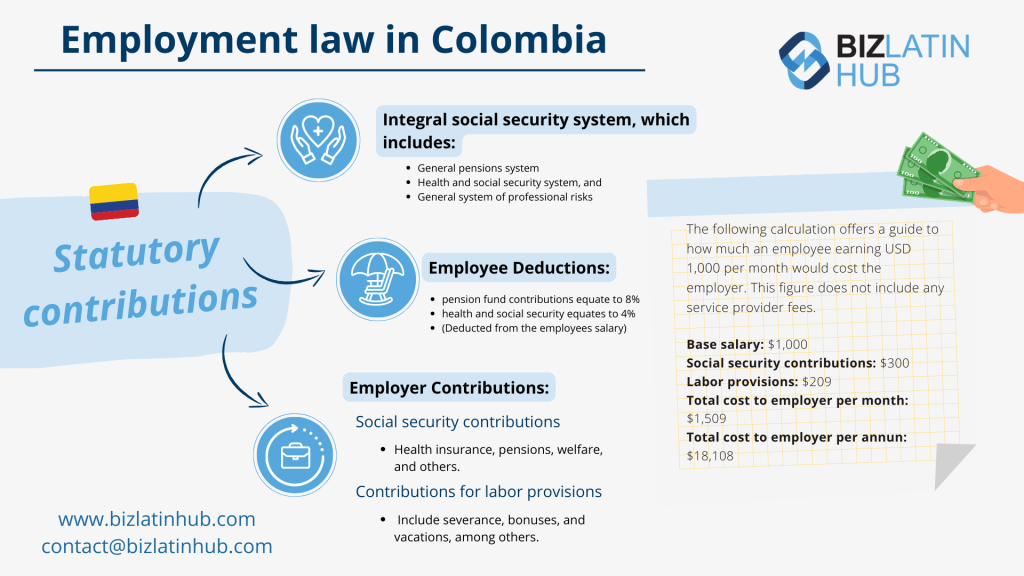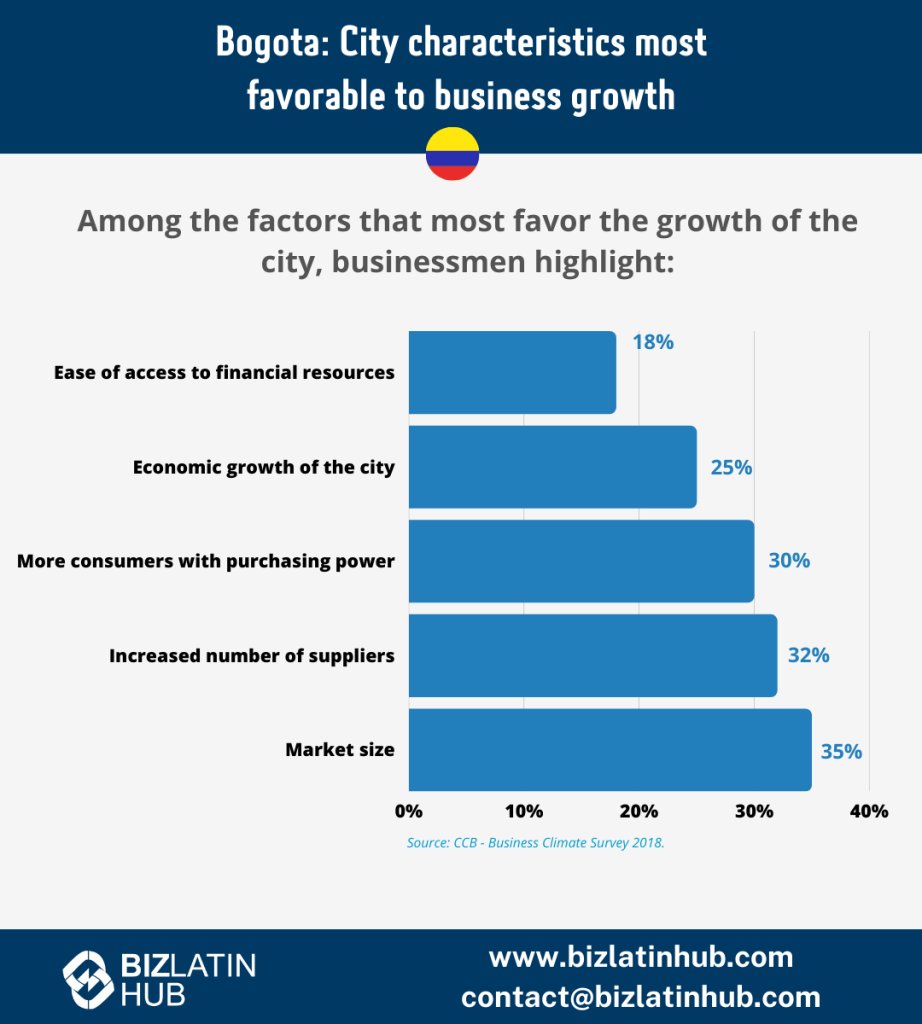
In our latest Q&A, Daniela Jaimes Bautista, Colombia’s Country Manager for Biz Latin Hub, discusses the Colombian government’s plans to gradually reduce the (official) work week from 48 to 42 hours and general employment law in Colombia.
Ms. Jaimes is a lawyer specialising in commercial Law, with ten years of experience in the fields of corporate, commercial and employment law in Colombia in the service sector.
See also: Starting a business in Colombia.
Biz Latin Hub: What will be the most significant changes to Colombia’s workday in 2023?
Daniela Jaimes: Starting mid-2023, the 48-hour work week will gradually be reduced. Colombians will work one hour less each year, which will not negatively affect their salary, benefits, or the value of the daily working hour. The initial objective of the measure is to reduce the workday to 42 working hours per week by the year 2026. It will start with one hour less in the first two years (2023 and 2024) and two hours less in the following years (2025 and 2026).

BLH: Colombia’s so-called “21/01 of 2021 Law” will gradually reduce official work time from 48 hours per week to a maximum of 42 hours by 2026. What implications will this law have on Colombia’s economy and productivity?
DJ: Many members of Congress believe that reducing the working day in Colombia is not viable, considering that the economy is going through a critical moment. It is also uncertain what adverse effects this bill could have on the country’s business community. Additionally, they argue that it does nothing to reduce informal working in the country and could even exacerbate the situation.
It is valid to presume that reducing the working day could lead to lower production due to fewer working hours. Additionally, it would imply economic repercussions for the employer in the case of needing a worker for more hours, and the need to pay for more hours that would already be considered overtime will start to arise.
Many analysts point out that this change is not advisable for the productive sector and that this is an inconvenient time because we know the difficulties that companies are going through. Most are trying to reactivate and resume the pace of production pre-pandemic. They argue that this measure may affect the possibility of recovery by having fewer working hours, which could result in less productive working time, or the need to hire more workers, increasing production costs.
On the other hand, Colombia was in default of complying with the recommendations of the ILO since 1962 and the call of the international community on the reduction of the maximum working day as a mechanism to free the worker from work burdens, which allows the enjoyment of family, social, recreational, and cultural spaces that will improve social indicators.
However, even though Law 2101 of 2021 reduces the maximum working day from 48 to 42 hours per week, the employment law inColombia will continue to be above the average working day of the OECD member countries, which is 37 hours per week, nor will it reach the typical working day recommended by the ILO of 40 hours per week, a work week found in more productive countries.
BLH: What sectors/industries are likely to be most impacted by this work hours-reduction employment law in Colombia?
DJ: The sector that has had the most negative opinions about the new law is the industrial sector. The National Association of Entrepreneurs (ANDI) has expressed its opinion on this matter, stating that reducing working hours does not imply a reduction in the time of the productive processes in a company, which means that more personnel would have to be hired. The sectors that subsist on production by reducing working hours would be the most affected by having to hire more personnel or pay more overtime.

BLH: What does the Colombian government say is the motivation for reducing work hours from 48 to 42? What’s the reasoning behind it?
DJ: The motivation that initially led to taking this measure was workers’ mental health and productivity by reducing the mandatory hours of Colombian workers, increasing quality time with family and friends, etc. Additionally, the law is created so that workers have more free time that they can use to get additional training and acquire new skills. The expectation is that it will reduce the absenteeism of workers, benefit the reactivation of employment, and create a better awareness of the relationship between employers.
It is becoming increasingly common to see more organizations adopting flexible measures, such as working Fridays until noon and generating more flexible work schedules. I believe the spirit of this legislation is to create a better work/life balance for workers.
BLH: As you mentioned, the ANDI thinks the employment law in Colombia could have adverse effects on Colombia’s economy since the production processes will have to adjust to the new changes, resulting in paying more overtime or more workers being hired to maintain current production levels. Is this a fair assessment of the new workday law?
DJ: Since this new working schedule has not yet been put into practice, there’s only speculation about this new law’s possible positives and negatives. But the assessment of the ANDI from an objective point of view makes a lot of sense. The reduction of the working day would have consequences, especially for the industrial sector; fewer working hours means less production of products which would raise their cost, and it would become essential to hire more staff to sustain production levels. If the employer is unwilling or unable to hire more staff, the employer will face higher costs in paying overtime to workers. This would not achieve the law’s goal of generating more free time for family, training, etc.
It is crucial to see how this measure will evolve and how improvements that genuinely reflect the labour realities of workers and companies in Colombia can be implemented along the way.
Biz Latin Hub can help you with employment law in Colombia
At Biz Latin Hub, we provide integrated market entry and back-office services throughout Latin America and the Caribbean, with offices in Bogota and Cartagena, as well as over a dozen other major cities in the region. We also have trusted partners in many other markets.
Our unrivalled reach means we are ideally placed to support multi-jurisdiction market entries and cross-border operations.
As well as knowledge about hiring in Colombia, our portfolio of services includes hiring & PEO accounting & taxation, company formation, bank account opening, and corporate legal services.
Contact us today to learn more about how we can assist you in finding top talent or doing business in Latin America and the Caribbean.
If this Q&A about employment law in Colombia was of interest to you, check out the rest of our region coverage. Or read about our team and expert authors.






